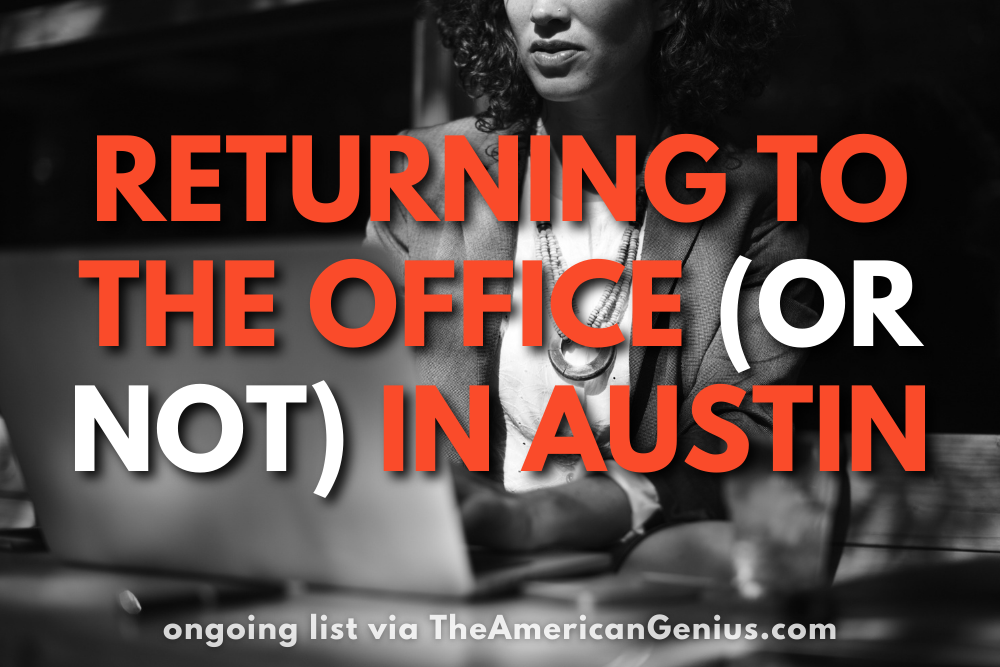Prop 1 lit the fire
Prior to 2016, tech and politics in Austin swam in their respective lanes for the most part. But with the failure of Proposition 1, a fire has been lit. What was once disorganized, individual efforts happening in their own vacuums, has been organized and kickstarted overnight, taking form as a new tech PAC, and a separate policy coalition, both aimed directly at Austin City Council.
How did these organizations take shape, how are they finding their way, and are politicians in town really ready for what’s about to happen?
How politics and tech overlapped pre-2016
Prior to this year, Austin technologists gave generously to political campaigns independently, for their own personal reasons.
People like BuildASign CEO, Dan Graham, and Capital Factory Founder, Joshua Baer are well known for their ambitions for the tech sector’s overlap with politics.
William Hurley (whurley), Founder and CEO at Honest Dollar is also active, hosting a fundraiser for Hillary Clinton and rubbing elbows with Clinton herself.
Austin Technology Council Senior Advisor, Grover Bynum began laying the groundwork back in 2013 for the tech sector to interact with policymakers.
Traditionally, large companies like Microsoft sent out government relations folks to connect with local politicians. But all of this existed separately.
Transformers, roll out
Enter 2016, the year that the tech sector loudly lamented what they felt was a local government that worked against innovation, running off ridesharing giants like Uber and Lyft, while hampering the short term rental sector through over-regulation, impacting large tech companies like Airbnb, and HomeAway (headquartered in Austin).
The tech industry was repeatedly outraged, but had no collective voice. Combine that lack of a voice with what Austin Technology Council (ATC) CEO, Barbary Brunner calls the local tech sector’s “maturation,” and like a transformer turning from a rusty Camaro into a shiny, powerful 18-wheeler, new political efforts have taken shape.
The ATC Policy Coalition combines Bynum’s years of efforts organizing with Brunner’s tech career which was pre-dated by a career in the policy arena. The Coalition is focused on “creating policy and a representative environment that supports and grows Austin’s innovation brand.”
Simultaneously, Baer created a Facebook group called the Austin Tech Alliance (ATA) which has already hired their first full time lobbyist to accomplish their mission of connecting “elected officials with the Austin Technology, Entrepreneurship & Innovation Community.” The political action committee (PAC) will fundraise and ultimately, endorse candidates.
The ATC Policy Coalition and the ATA PAC are in the early stages of formation and are both independently finding their way. Brunner says ATC’s focus is on collaboration to best serve the sector, which is logical given that more policy and PAC efforts are already being discussed in various tech circles.
Meanwhile, the sector is focused on voter registration which is offered at all ATC events and separately is being done through Tech Votes, a new effort led by Aceable CPO, Erin Defosse.
Challenges moving forward
What happens when you fill a room of t-shirt wearing, casual technologists with blazer wearing hierarchical politicians? How will this group of tech folks that are accustomed to mutual respect and accessibility (meaning a junior developer can easily chat openly with the CEO) work with a group of political leaders that are accustomed to gatekeepers, agendas, and tradition? We’ll see.
There could be a future culture clash coming, but with the people in tech that are currently involved in the rapid deployment of these efforts, it will likely be a very private clash as all parties will be interested in progressing together.
So what can individuals in the tech sector do right now to get involved? Unfortunately, Brunner notes “there is no mechanism for individual involvement at this time,” but that will eventually change. She recommends getting involved in neighborhood organizations.
Perhaps that’s the only mechanism that is useful while the tech industry transforms into a unified voice.
Ultimately, there is currently no way to hold local or state candidates’ feet to the fire as an industry. But that’s changing overnight, primarily through the ATC Policy Coalition and the Austin Tech Alliance.
Says Austin-based The American Genius Founder and CEO, Benn Rosales, “Currently leading the charge is optimistic tech executives seeking to support policies that promote business growth, reduce over-regulation, lower tax rates, and offer initiatives that treat fairly tech employees from startup founder to entry level developer to the C-suite, as part of the Texas tradition of pro-growth.”
The final question is: How will politicians react after years of technologists quietly swimming in their own lane, and what advantages will the tech sector gain from these efforts?
#TechPolitics
Lani is the COO and News Director at The American Genius, has co-authored a book, co-founded BASHH, Austin Digital Jobs, Remote Digital Jobs, and is a seasoned business writer and editorialist with a penchant for the irreverent.









































Pingback: Looks like Austin ridesharing options can't handle major surges - The American Genius
Pingback: Tech CEO ousted after threatening President Elect's life - The American Genius
Pingback: The secret reason Austin tech wants Uber/Lyft back in town (it has nothing to do with ridesharing) - The American Genius